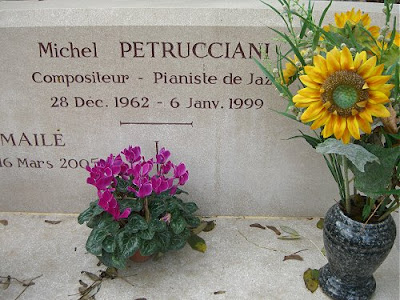Deus ex machina
My recent retreat at the Benedictine Abbey of Saint Madeleine at Le Barroux in south-eastern France was my first since the COVID-19 pandemic. Since my last visit the Monastery has been extended and a new organ by Bernard Aubertin has been constructed in the Abbey church . The specification of the new organ is available via this link. Here is background to organ builder Bernard Aubertin from the Les Maitres d'Art website:
The Aubertin organs are true creations, each being adapted to a unique person and to a precise place. The choice of proportions, governing the visual aspect, must be closely linked to the tone. Bernard Aubertin is a “biological” organ maker and refuses the “an organ can play any music”, using traditional materials. The main goal being for the artist to create a made-to-measure instrument , both living and welcoming, able to give pleasure and surprise again and again.
Precise research aimed at finding the right materials and techniques to make the instrument live several centuries, leads the craftsman to varied technical and sound innovations. Bernard Aubertin is also asked, all over the world, to restore ancient organs. His workshops are situated in an old priory destroyed by different wars, abandoned and restored by the craftsman since 1978.
The monastic community at Le Barroux has released a highly-recommended double CD of the Aubertin organ played by guests Nigel de Gaunt-Allcoat, Simone Pedroni, Maurits Bunt, and Iain Simcock who advised on the construction of the new organ . The CD's repertoire avoids the 'organ play any music' by with an eclectic programme of Jacques Boyyin, François Couperin, Jean-Adam Guilain, Pierre Cochereau, Michael Praetorius, Jan Pieterszoon Sweelinck, Nicolaus Bruhns, and J.S. Bach. (Quiz time: which is the only 20th century composer in that list?)
As well as guesting on that double CD the young Dutch Maurits Bunt organist has also released a solo album of similarly eclectic repertoire. Recorded on the organ of Cathédrale Notre-Dame de l'Assomption de Rodez which originally dates from 1627 and is ideally suited to for French baroque works, the programme features music by Louis-Nicolas Clérambault and J.S,Bach.
Both CDs are available online from the Monastery website. The Latin loan words Deus ex machina are derived from the Greek for "god from the machine". This refers to the conventions in ancient Greek theatre where actors playing gods arrived on stage using a machine.








Comments